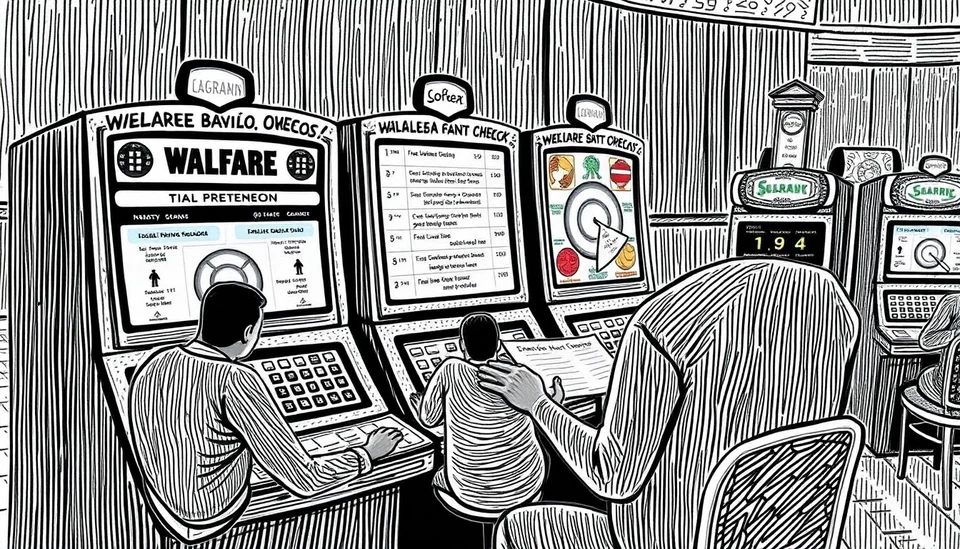
In Brazil, a concerning trend has emerged as recent welfare disbursements are inadvertently fueling a nationwide gambling spree. The government assistance programs, intended to support vulnerable populations, are being channeled into the gambling industry, raising alarms among officials and analysts alike.
The wave of gambling has been attributed to the significant increase in social aid payments, particularly from the Bolsa Família initiative, which has seen its budget swell under the current administration. Families receiving these benefits, designed to alleviate poverty, are reportedly spending a portion of their checks on various gambling platforms, including both digital and physical venues. This phenomenon has sparked worries regarding the impact on household finances and the overall socioeconomic health of affected communities.
Experts suggest that the intersection of increased welfare aid and a rise in accessible gambling options—thanks to both legal and illegal online platforms—has created a perfect storm for addiction and financial instability. Many recipients, often living on the brink of poverty, are prioritizing the chance to win big over essential needs like food and healthcare. This trend poses serious questions about the effectiveness of welfare programs and their intended purpose of fostering economic stability.
A further complication arises from the immense growth of Brazil's gambling industry, which has flourished in the past few years. Government tracers indicate that many betting shops and online casinos have been aggressively marketing their services, targeting low-income individuals who are likely to gamble their welfare checks. This marketing tactics reveal a darker side of the gambling boom, one that exploits the financial vulnerabilities of those it should be helping.
In response to this alarming situation, Brazilian authorities are contemplating regulatory interventions aimed at mitigating the negative effects of gambling on welfare recipients. Proposals being discussed include tighter regulations on advertising and stricter measures on how and where gambling is allowed, especially in areas densely populated by low-income families. There is a call for a delicate balance to be struck between permitting gambling as a legitimate form of entertainment and protecting vulnerable populations from exploitation.
The plight of Brazilian families highlights a complex network of socioeconomic issues where state welfare and private enterprise intersect dramatically. Policy makers are urged to consider strategic solutions that reinforce the original goals of social aid programs while curtailing the negative impact of gambling. This includes reevaluating the distribution of welfare checks and implementing educational campaigns about the risks of gambling addiction.
As Brazil grapples with this pressing challenge, the stakes are high. The balance between providing necessary economic support and safeguarding against the potential harms of gambling remains a pivotal concern for the nation's future.
#Brazil #Gambling #WelfareChecks #BolsaFamília #SocialAid #AddictionPrevention #GovernmentIntervention #SocioeconomicChallenges
Author: Laura Mitchell




